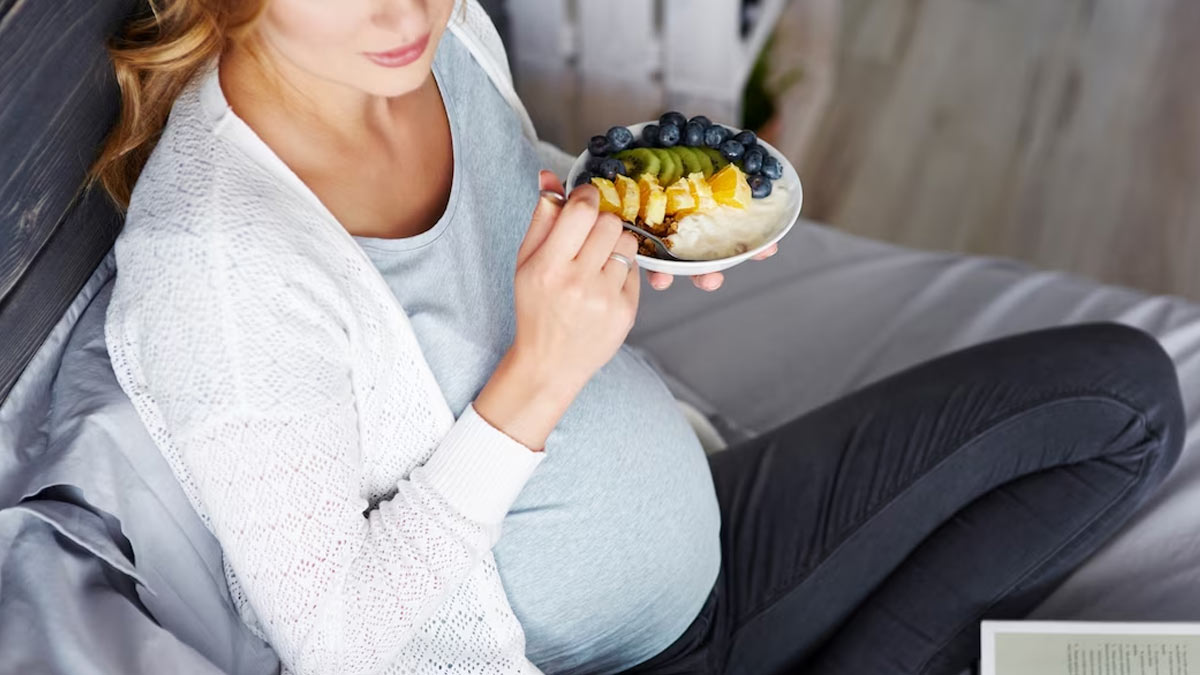
Did you know your diet plays a crucial role during pregnancy? A healthy pregnancy diet is built on the foundation of nutrient-rich, whole foods that provide essential vitamins and minerals for both you and your baby. While there are certain foods to avoid and precautions to take, it's important to maintain a well-balanced diet that supports your baby's growth and development. We spoke to Swathi, Dietician, Manipal Hospital, Vijayawada, who listed dietary requirements during pregnancy and what’s safe and unsafe to eat.
Table of Content:-
Swathi said, “Pregnant women must prioritise their diet to meet the special nutritional needs of their unborn babies. The body requires extra nutrients during this time, with an additional intake of 400-500 kcal per day recommended during the 2nd and 3rd trimesters.”

According to the Journal of Family and Community Medicine, inadequate nutrition during pregnancy doesn't only impact the newborn; it also negatively affects the mother's well-being. When a pregnant woman's diet falls short in providing the necessary nutrients for both her requirements and those of the foetus, the foetus obtains its needs by depleting these nutrients from the mother's tissues. This depletion weakens the mother, elevating the risk of severe complications and the likelihood of giving birth to a Low Birth Weight (LBW) infant who might struggle to feed adequately during the early stages of life.
Also Read: Bodily Changes During Pregnancy: Expert Lists Changes Nobody Tells You About
Foods To Add To Your Diet During Pregnancy
Swathi listed food items you should add to your pregnancy diet as follows:

Dairy Products
Dairy products play a significant role in meeting the increased protein and calcium requirements. Protein is crucial for the development of your baby's tissues and organs, while calcium is essential for bone development. Incorporate yoghurt, paneer, ghee, and milk to enhance calcium levels and support the growing foetus.
Eggs
Eggs are often referred to as a superfood due to their richness in vitamins, proteins, and minerals. They aid in the growth of the baby by generating and repairing foetal cells. Eggs also contain a substantial amount of choline, vital for the development of the baby's brain and nervous system.

Bananas
Bananas are a valuable source of folic acid, calcium, potassium, and antioxidants. They contribute to immunity boosting and improved vision.
Legumes
Legumes and pulses provide plant-based protein, fibre, calcium, and essential fatty iron, all crucial for the well-being of pregnant women.
Nuts
Nuts and oil seeds are packed with healthy fats like Omega-3 and Omega-6 fatty acids, protein, and fibre, supporting the development of the foetal brain.
Also Read: Planning Pregnancy: Expert Lists Things You Should Know Before Conceiving
Do’s and Don’ts During Pregnancy
Do’s During Pregnancy

- Consume small, frequent meals at fixed times
- Include ample oral vegetables and green leafy vegetables in your diet, along with plenty of fluids
- Engage in a 15-20 minute walk after every meal
- Consume tea and coffee in moderation
- Include nuts and oil seeds in moderate quantities
Don’ts During Pregnancy

- Avoid processed, packaged, deep-fried, and junk foods, and carbonated beverages containing MSG (ajinomoto)
- Refrain from consuming raw papaya, pineapple, sesame seeds, and soya milk, as these can lead to contractions
- Manage your stress levels for a healthy mind
- Steer clear of high-mercury fish
- Avoid half-boiled eggs, smoked, or grilled non-vegetarian foods
- Stay away from raw milk (packaged) to prevent any potential risks
Disclaimer
The information in this article is shared by a registered healthcare professional and is for informational purposes only. We advise you to consult with your expert for a dietary plan tailored to your needs.
Also watch this video
How we keep this article up to date:
We work with experts and keep a close eye on the latest in health and wellness. Whenever there is a new research or helpful information, we update our articles with accurate and useful advice.
Current Version